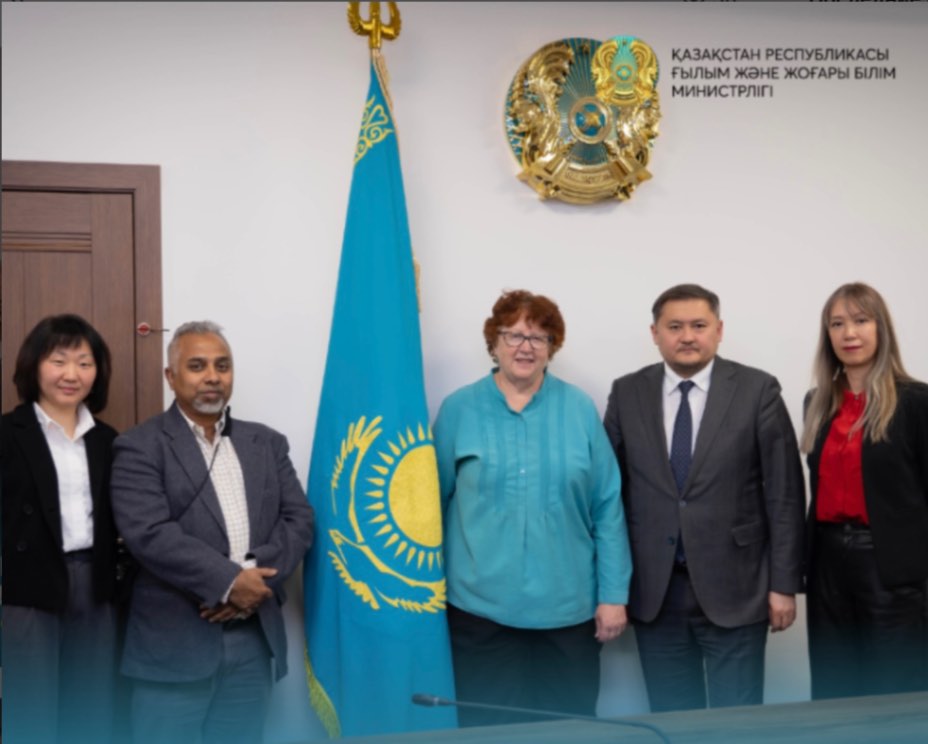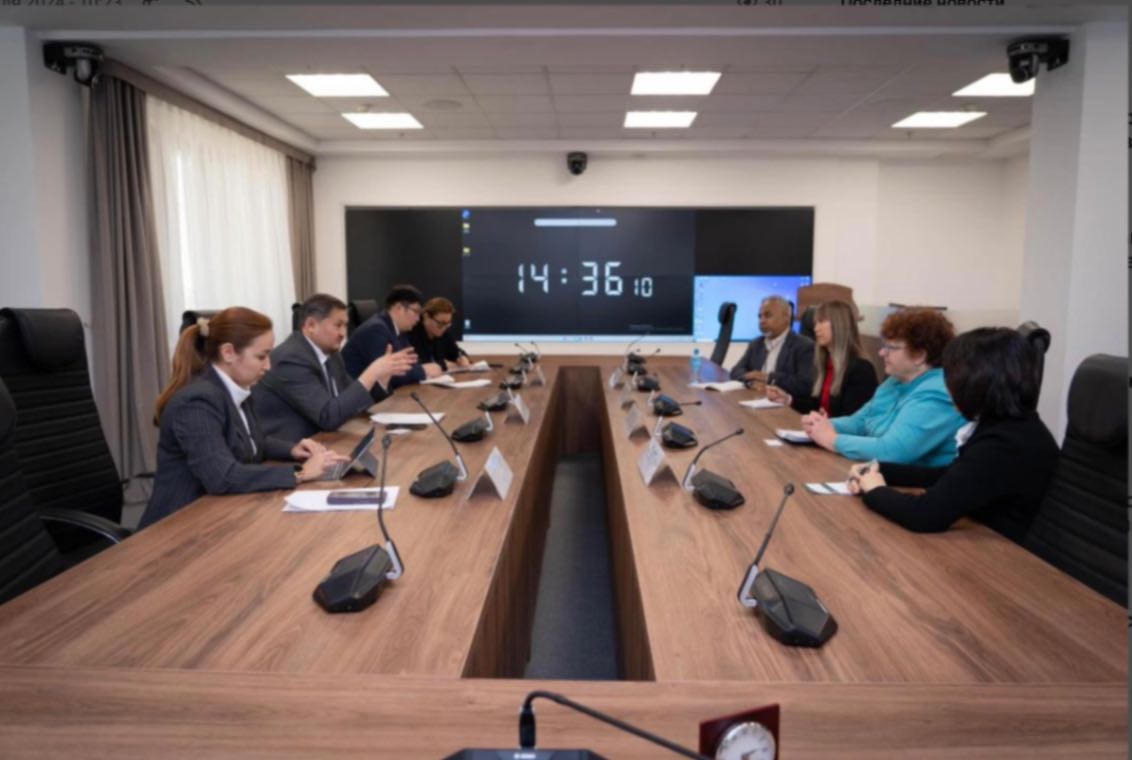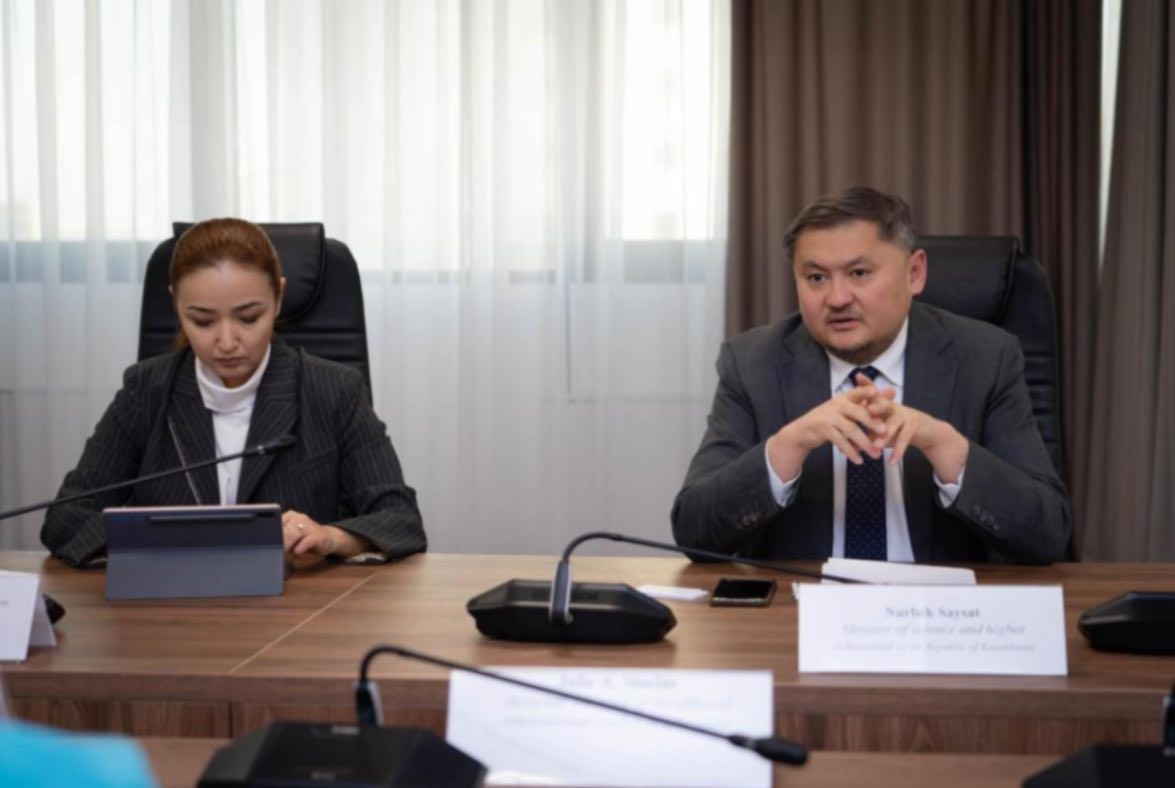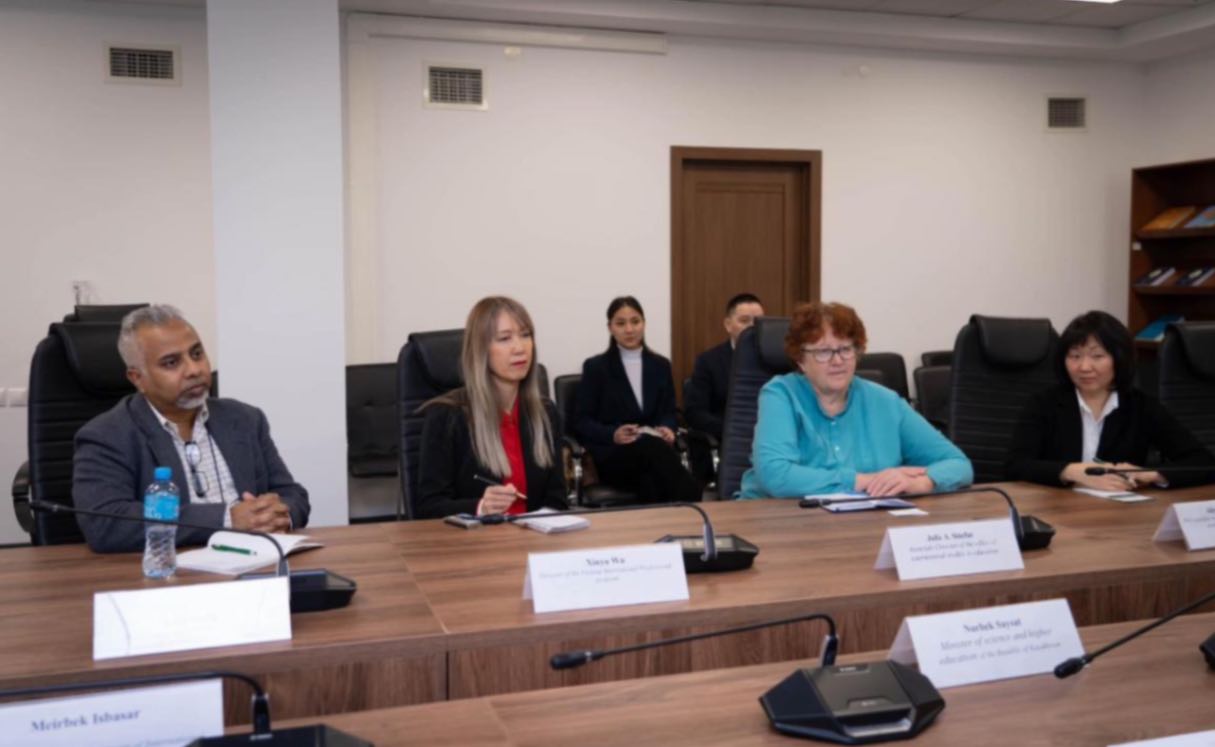In a bid to enhance the quality of education and address the growing demand for qualified teachers, the Minister of Science and Higher Education of the Republic of Kazakhstan recently convened a crucial meeting with representatives from Michigan State University to explore potential collaboration avenues, the Ministry of Science and Higher Education reported.

The focal point of discussions centered on the feasibility of forging a memorandum aimed at facilitating the training of highly skilled teaching personnel. President Kassym-Jomart Tokayev underscored the importance of prioritizing teacher training, recognizing pedagogy as a critical scientific discipline that warrants innovative approaches.
In alignment with the directives from President Tokayev, the Ministry of Science and Higher Education of Kazakhstan has been actively engaging in dialogues with prominent educational institutions, such as Michigan State University, to address the pressing need for quality teacher education. The proposition of establishing a branch of Michigan State University in Kazakhstan was also deliberated upon during the talks.

Sayasat Nurbek, the Ministry of Science and Higher Education, highlighted the urgency of enhancing teacher training programs amidst a burgeoning demand for educators, particularly in urban centers like the capital. Nurbek outlined a strategic vision for the transformation of teacher education, emphasizing the need to bolster training initiatives across three key domains: regional teacher deployment, hybrid learning methodologies, and leadership development for educators.
“The focus of pedagogy in the first stage was teacher training. Now schools are experiencing a large shortage of personnel, especially in the capital, the population is growing, and the demand for quality education is growing. Apart from government schools, we have various international schools and all of them need qualified teachers. Today, an institutional transformation of teacher education is underway. Improving the quality of teacher training is carried out in three directions. Thus, measures are being taken to provide regions with teaching staff in accordance with their needs,” Sayasat Nurbek noted.

The Kazakh delegation proposed collaboration in several crucial areas, including hybrid learning techniques, school leadership enhancement, and professional development opportunities for university administrators. In response, representatives from Michigan State University expressed keen interest in fostering cooperation with Kazakhstan, citing the country's emerging role as a regional educational leader.
Sakil Malik, Senior Global Practice Leader in Global Education at Michigan State University, commended Kazakhstan's strides in education and pledged support for collaborative initiatives. Malik outlined the diverse array of programs and resources available at Michigan State University, underscoring the institution's commitment to advancing inclusive education and professional development for educators.

“On a global scale, we also see that Kazakhstan is becoming a regional leader. We are engaged in the professional development of teachers, conduct real research, and are also engaged in inclusive education. From our side, a hybrid model, a certificate program, etc. are available. If there are specific school leaders and teachers who want to come to Michigan for a longer or short-term program, then we can become a permanent member of the Ministry's partnership. After discussing all the details, we will create a specific project for you,” Sakil Malik voiced.
Recognizing the pivotal role of Kazakh universities in shaping the future of teacher education, both parties agreed to draft a memorandum outlining the scope of the partnership and a roadmap for its implementation.
Follow Daryo's official Instagram and Twitter pages to keep current on world news.
Comments (0)